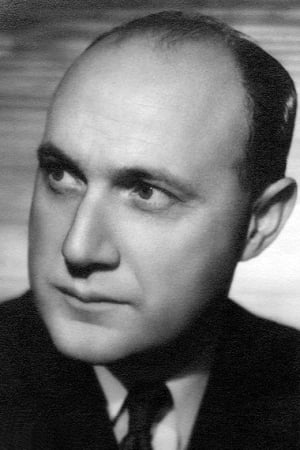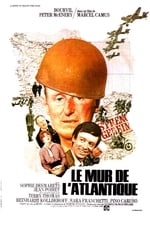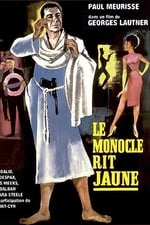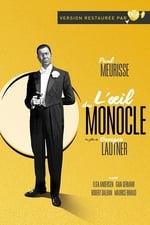Personal Info
Known For Writing
Known Credits 6
Gender Male
Birthday August 6, 1904
Day of Death July 29, 1984 (79 years old)
Place of Birth Vannes, Morbihan, France
Also Known As
- Gilbert Renault
Content Score
100
Yes! Looking good!
Login to report an issue
Biography
Gilbert Renault (August 6, 1904 – July 29, 1984), known by the nom de guerre Colonel Rémy, was a notable French secret agent active in World War II, and was known under various pseudonyms such as Raymond, Jean-Luc, Morin, Watteau, Roulier, Beauce and Rémy.
Gilbert Renault was born in Vannes, France, the oldest child of a Catholic family of nine children. His father was a professor of Philosophy and English, and later the inspector general of an insurance company. He went to the Collège St-François-Xavier in Vannes, and after his studies he went to the Rennes faculty. His sisters were Maisie Renault and Madeleine Cestari.
A sympathizer of French Action in the Catholic and Nationalist line, he began his career at the Bank of France in 1924. In 1936, he began cinematic production and finances, and made J'accuse, a new version of the Abel Gance film. It was a resounding failure, but the many connections Renault made during this period were very useful during the resistance.
With armistice declared of June 18, 1940, he refused to accept Marshal Philippe Pétain and went to London with one of his brothers, on board a trawler which departed from Lorient. He was one of the first men to adhere to the calls of General Charles de Gaulle, and was entrusted by Colonel Passy, then captain and chief of the BCRA, to create an information network in France.
In August of that year he met with Louis de La Bardonnie, and together they created the Notre-Dame Brotherhood, which would become NDT-Castille in 1944. Initially centered on the Atlantic coast, it ended up covering much of occupied France and Belgium. This network was one of the most important in the occupied zone, and its information allowed many military successes, as the attack on Bruneval and on Saint-Nazaire.
Convinced that it was necessary to mobilize all forces against the occupation, he put the French Communist Party in touch with the exiled government of Free France in January 1943. Gilbert Renault later admitted it was Pierre Brossolette who got him in touch with political groups and trade unions.
Awarded the Ordre de la Libération on March 13, 1942, he became a member of the executive committee of the Rally of the French People (RPF) from its creation, in charge of trips and demonstrations. He appeared in Carrefour, April 11, 1950, in an article entitled 'La justice et l'opprobre' (Justice and the Opprobrium), in which he preached the rehabilitation of Marshal Pétain. A short time afterwards, he adhered to the Association of defense of the memory of Marshal Pétain (ADMP). Repudiated by de Gaulle, he resigned from the RPF.
He settled in Portugal in 1954 and returned to France in 1958 to be placed at de Gaulle's disposal, who refused. He was also very active from this time onwards in various associations, including ultra-conservative Catholic networks.
He died in Guingamp, France, in 1984.
Renault wrote many works on his activities in the Resistance. Under the name of Rémy (one of his pseudonyms in clandestinity), he published his Mémoires d'un agent secret de la France libre et La Ligne de démarcation (adapted for cinema by Claude Chabrol in 1966), which are regarded as important testimonies on the French Resistance.
He had the writer Jean Cayrol under his orders.
Source: Article "Gilbert Renault" from Wikipedia in English, licensed under CC-BY-SA 3.0.
Gilbert Renault (August 6, 1904 – July 29, 1984), known by the nom de guerre Colonel Rémy, was a notable French secret agent active in World War II, and was known under various pseudonyms such as Raymond, Jean-Luc, Morin, Watteau, Roulier, Beauce and Rémy.
Gilbert Renault was born in Vannes, France, the oldest child of a Catholic family of nine children. His father was a professor of Philosophy and English, and later the inspector general of an insurance company. He went to the Collège St-François-Xavier in Vannes, and after his studies he went to the Rennes faculty. His sisters were Maisie Renault and Madeleine Cestari.
A sympathizer of French Action in the Catholic and Nationalist line, he began his career at the Bank of France in 1924. In 1936, he began cinematic production and finances, and made J'accuse, a new version of the Abel Gance film. It was a resounding failure, but the many connections Renault made during this period were very useful during the resistance.
With armistice declared of June 18, 1940, he refused to accept Marshal Philippe Pétain and went to London with one of his brothers, on board a trawler which departed from Lorient. He was one of the first men to adhere to the calls of General Charles de Gaulle, and was entrusted by Colonel Passy, then captain and chief of the BCRA, to create an information network in France.
In August of that year he met with Louis de La Bardonnie, and together they created the Notre-Dame Brotherhood, which would become NDT-Castille in 1944. Initially centered on the Atlantic coast, it ended up covering much of occupied France and Belgium. This network was one of the most important in the occupied zone, and its information allowed many military successes, as the attack on Bruneval and on Saint-Nazaire.
Convinced that it was necessary to mobilize all forces against the occupation, he put the French Communist Party in touch with the exiled government of Free France in January 1943. Gilbert Renault later admitted it was Pierre Brossolette who got him in touch with political groups and trade unions.
Awarded the Ordre de la Libération on March 13, 1942, he became a member of the executive committee of the Rally of the French People (RPF) from its creation, in charge of trips and demonstrations. He appeared in Carrefour, April 11, 1950, in an article entitled 'La justice et l'opprobre' (Justice and the Opprobrium), in which he preached the rehabilitation of Marshal Pétain. A short time afterwards, he adhered to the Association of defense of the memory of Marshal Pétain (ADMP). Repudiated by de Gaulle, he resigned from the RPF.
He settled in Portugal in 1954 and returned to France in 1958 to be placed at de Gaulle's disposal, who refused. He was also very active from this time onwards in various associations, including ultra-conservative Catholic networks.
He died in Guingamp, France, in 1984.
Renault wrote many works on his activities in the Resistance. Under the name of Rémy (one of his pseudonyms in clandestinity), he published his Mémoires d'un agent secret de la France libre et La Ligne de démarcation (adapted for cinema by Claude Chabrol in 1966), which are regarded as important testimonies on the French Resistance.
He had the writer Jean Cayrol under his orders.
Source: Article "Gilbert Renault" from Wikipedia in English, licensed under CC-BY-SA 3.0.
Writing
|
|||
|
|||
|
|||
|
|||
|
Acting
|





